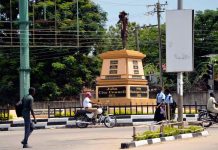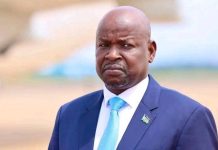Africa-Press – South-Sudan. A senior economist has said the prospects of South Sudan’s economic growth look brighter.
In an exclusive interview with The City Review, Dr Abraham Maliet Mamer who is the economic advisor in the office of the Vice President for the Economic Cluster, said the current indicators suggest that the economy will be stronger this year.
He said the improvements in infrastructure are one of the positive indicators expected to accelerate economic growth in the country.
“The government is embarking on infrastructure and given the high needs of our country,” said Maliet.
He said some areas produce a lot of food, they are not linked to areas of consumption.
“If we had roads linking areas of production to areas of consumption, that itself is an indicator of economic growth.”
Dr Maliet said peace is one of the potential stimulants for economic growth, particularly in production-oriented areas like Northern Bahr el-Ghazal, Western Equatoria, Warrap, and Eastern Equatoria.
“Relative peace is an indicator that our economy can accelerate because if there is peace, people can trade and some products can reach the market,” Maliet said.
“The South Sudanese as a people have embarked on a service economy,” he said. “If you go around Juba, you can find internet cafés…if people can communicate with cities and remote areas. That means there is an economy going on.”
Dr Maliet said he was very optimistic as the indicator shows a soft entry into a subtle economy.
“I believe that internationally we are gaining the momentum for peace.”
While praising the progress in the economy, the economist warned against frequently replacing finance ministers.
According to him, frequent changes have an impact on the execution of sound economic policies.
“Ministers need stability and should be allowed to serve at least two years because the minimum time period of any economic growth needs at least two years.”
“Ministers of finance should be given time to accomplish [the missions]. When a minister is stable, then he is going to focus more and do policy implementation. “
“Now the minister comes in and during the first six months, he is to pay those who lobbied for him. He is also told to pay people. How can he pay people if he is there for six months?” he asked.
“Give a chance to do what he was assigned to do.”
He advised the minister of finance to enlist the expertise of national economic experts to provide economic expertise to policy implementation.
“There are so many nationals who are qualified in the fields of economy and infrastructure. South Sudan has a lot of expertise and skills that need to be tapped into.”
For More News And Analysis About South-Sudan Follow Africa-Press






